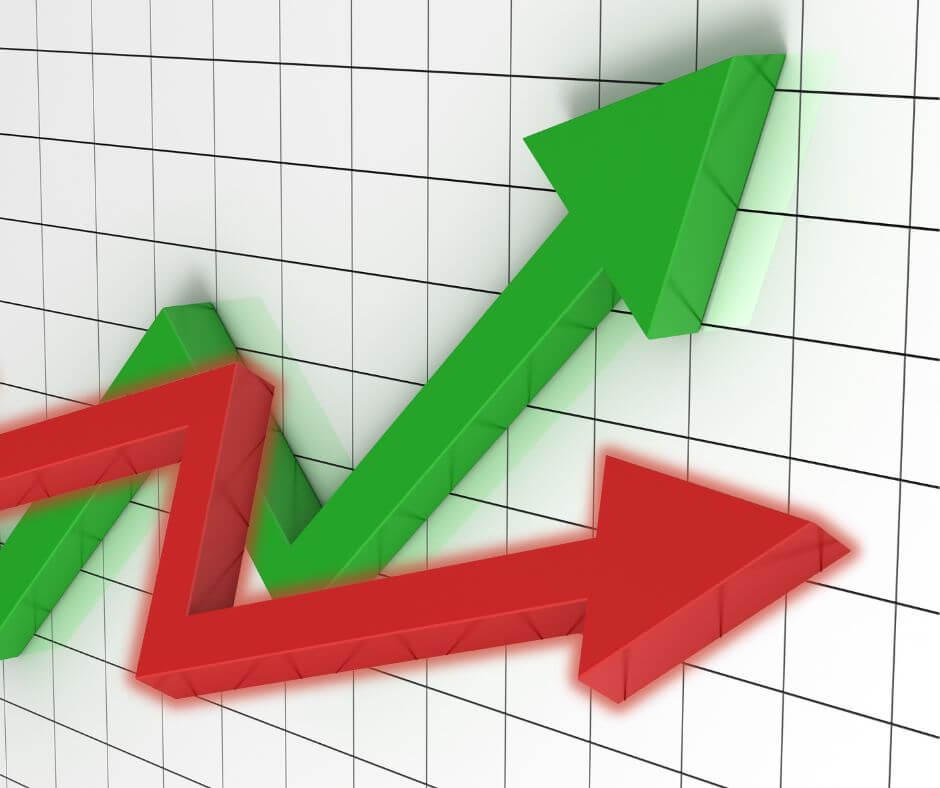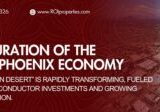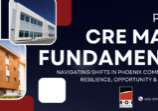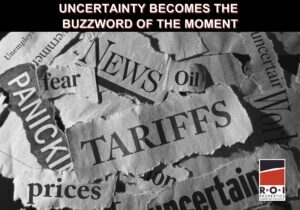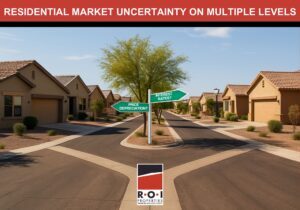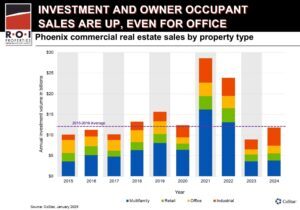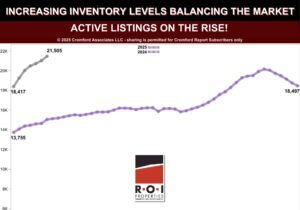Phoenix Commercial Real Estate News
Interest rates have trended up for commercial real estate, and the Federal Reserve is showing no signs of stopping in its efforts to curb inflation by making borrowing more costly. Fed officials are attempting to avoid a vicious circle, in which the current 9-plus-percent annual inflation rate feeds expectations for further inflation—which then causes prices and wages to spiral higher. Several more hikes are expected through the remainder of 2022, bringing the federal funds interest rate to 2.5%, the highest since 2018. How can we expect these changes to affect investing in commercial real estate property in Phoenix?
The relationship between interest rates and commercial real estate (CRE) is complicated, to say the least—given that there’s no crystal ball on inflation’s future path. The conventional wisdom is that, as a hard asset, CRE is inflation resistant. After a few terrible months on Wall St., at a time when there is significant capital eager to be deployed, the yields and appreciation potential from CRE can look particularly attractive.
3 Key Effects of Rising Rates on Real Estate
But the truth is that inflation and higher interest rates don’t affect all CRE asset classes, market participants, or geographic regions equally. Some elements where caution is warranted:
- Increased costs. Higher labor, materials, and borrowing costs aren’t just a problem for property developers, owners, and operators. Those pricing pressures trickle down to everyone in the real estate ecosystem, and ultimately to the economy as a whole—potentially fostering the inflationary spiral noted above. And, of course, profitability becomes trickier.
- Heightened competition. With rate increases anticipated, there is urgency to get capital deployed. In the Greater Phoenix market, the industrial sector has the tailwind of historic investment levels and pricing, but that has also attracted heightened competition. Multifamily has been hot as well, but in addition to competition (particularly with Class A product flooding into the market), continued interest rate hikes and skyrocketing apartment rents will further exacerbate affordability.
- Cap rates. Theoretically, increased interest rates should drive up cap rates (sellers need to offer higher yields and lower prices to attract a buyer) but it’s not a 100% correlation. Since there is ample available capital, cap rates have been steady or slightly compressed, narrowing the spread vs. T-bills. A competitive market for yields drives them down—particularly in industrial and multifamily with their low vacancies and healthy rent increases—but escalating interest rates could swing the cap rate pendulum in the other direction.
Overall, more expensive borrowing may mean more deals won’t make sense or can’t be done. On the lenders’ side, escalating rates may raise concerns about a borrower’s ability to pay. Adjustable-rate loans in particular are commanding a premium, as lenders try to protect themselves against promised Fed rate hikes.
Mid-2022 Recap: The Current State of the Market
One additional caveat about inflation is that it also affects investor returns, which requires keeping an eye on which asset classes may offer the best safe-haven opportunities—regardless of what the Federal Reserve does with rates. As we close out the first half of 2022, here’s an overview of the current performance and outlook in the Greater Phoenix market:
Multifamily Real Estate in Phoenix
This segment has been overbuilt for a considerable time, but it has not been impacted as much as anticipated. Sales volumes and prices have remained strong, and many smart multifamily owners are selling and achieving excellent returns even after owning less than a year. We are starting to see some cracks, however, with more properties hitting the market this year and an even larger influx of deliveries in the first half of 2022. (Just under 38,000 units are under construction, and over 26,000 are in some stage of planning.) Notably, record rent growth has also slowed and vacancies have increased slightly. Overall, the multifamily market has benefited from higher interest rates keeping people in the rental pool. While many ex-California homebuyers have ample cash, that’s not necessarily the case for everyone moving into Arizona. Multifamily developers and investors are counting on that in-migration to absorb the extra units.
Office Real Estate in Phoenix
Office reported vacancies are lower than anticipated, at about 20%, but a walk through many office buildings with professional and financial service tenants might yield a physical occupation rate significantly lower, with a corresponding significantly higher physical vacancy. Business owners are still bound by their leases—even if they’re not sure what to do with the space. Last year, employers/tenants kicked the can down the road with 1-year extensions, and landlords accommodated them in lieu of an outright termination. This year, at lease renewal time, many will be seeking to shrink their footprint—especially with the possibility of recession. That is likely to lead to the repurposing of office spaces, and we’re already seeing a trend towards smaller office spaces, in better locations with more highly amenitized buildings, a.k.a., the “flight to quality.” Building owners are retrofitting to get their tenants to renew, while employers will do whatever it takes to get employees back to the office.
Industrial Real Estate in Phoenix
Industrial has eclipsed multifamily as the favored investor asset class. While investing demand continues to be strong, plus major initiatives for Arizona as a logistics hub, there is a considerable amount of new space being built. About 36.5 million SF is under construction, representing about 9.2% of total inventory, and a significant amount is speculative. While the market has had no trouble as yet absorbing industrial property, it will be interesting to see how the influx plays out.
Retail Real Estate in Phoenix
Since retail was among the most troubled asset classes during the pandemic, it’s good to see a bit of a revival. In particular, investor interest has increased in neighborhood retail/multitenant retail centers and also with triple-net lease deals. Pricing has increased and cap rates have remained low, which creates a lot of good opportunity. It’s important to note the major shift on what’s successful: tenants providing services versus products—so-called internet-resistant tenants.
The conventional wisdom of CRE-as-inflation-hedge is so well known that it can be misleading, and even a self-fulfilling driver of investment behavior. There’s no substitute for knowing the fundamentals of the sector, submarket, and specific business deal and/or property—regardless of which direction interest rates are headed.
Let us help you find your perfect space!
Find a Commercial Property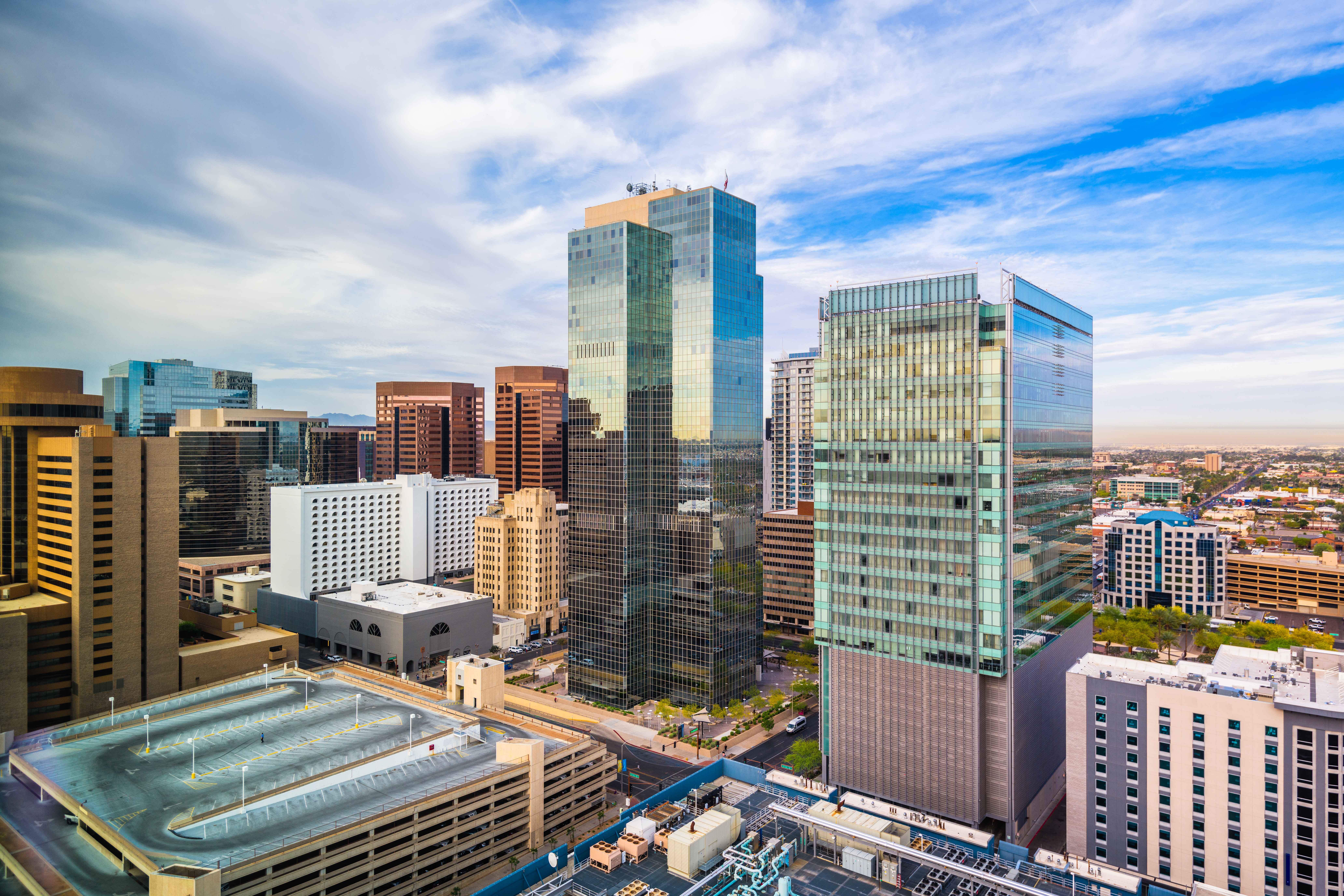
Contact R.O.I. Properties
Looking to buy or sell commercial real estate in Phoenix? Contact us today to learn how we can help you find the perfect investment property, or sell your existing property for the highest and best price: [email protected] or call 602-319-1326.
